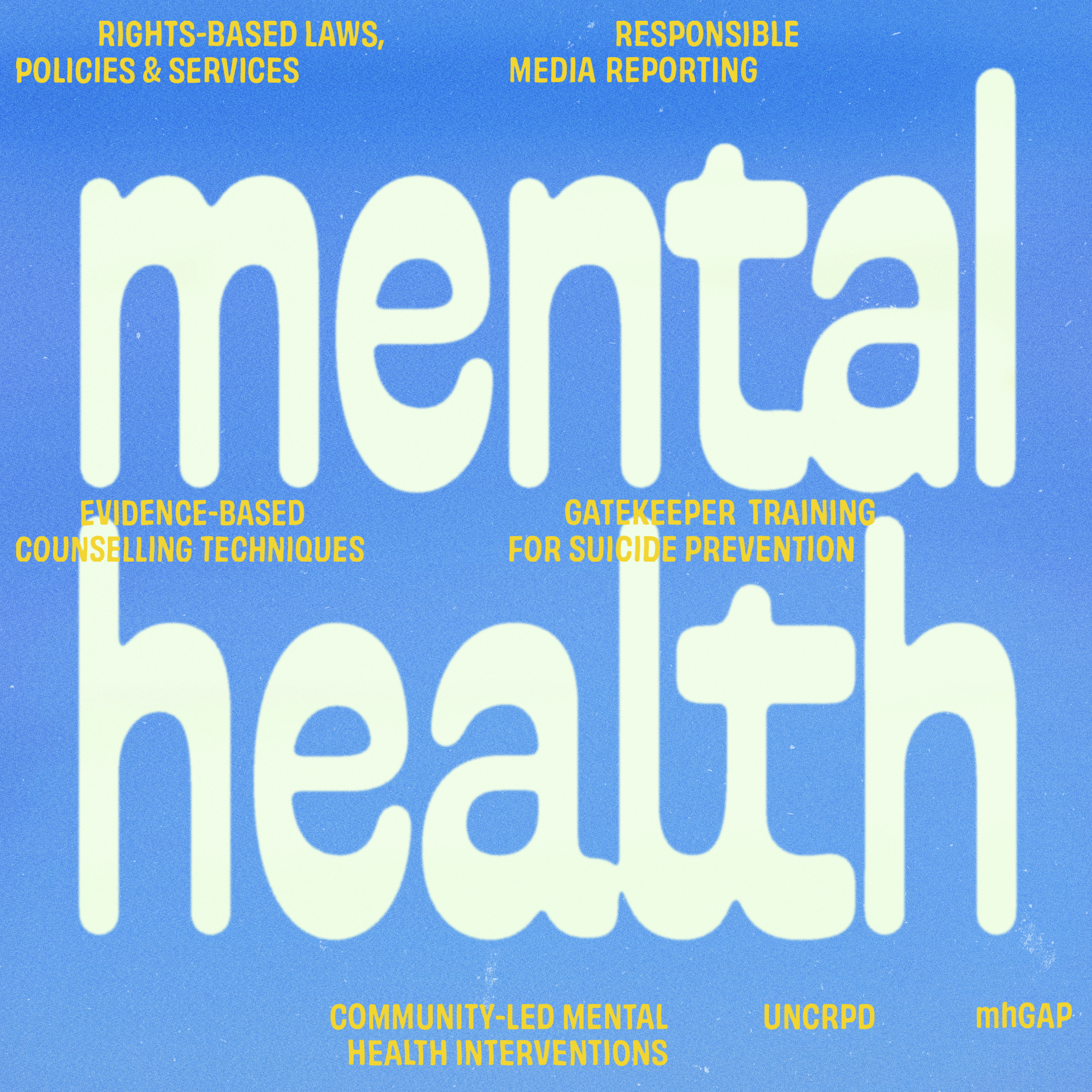
India’s mental health system is at a crossroads. Despite growing awareness, there remains a stark mismatch between the country’s mental health needs and the resources available to address them. According to India’s National Mental Health Survey (2015–16), nearly 150 million people live with a mental health condition, but less than 15% receive any form of treatment.
Mental health is a complex, intersectoral issue, influenced by social and structural factors and cannot be addressed by mental health professionals alone. Addressing mental health requires collective action, where everyone, ranging from policymakers, journalists, health professionals to community workers and caregivers, all have a vital role to play.
However, for individuals and institutions to challenge the structural conditions that contribute to poor mental health outcomes, there is a need to shift how we collectively understand and approach mental health.
Recognising this need, we at the Centre for Mental Health Law & Policy, Indian Law Society (CMHLP) have developed a range of evidence-based courses that equip professionals, community leaders and individuals with the knowledge and skills to examine, address and transform mental health in their own contexts and communities.
Informed by global best practices and insights from our on-ground research and practice, the courses offered at CMHLP are participatory and interactive, focused on building practical skills and perspectives that translate into real-life situations.
Courses offerered at CMHLP
The Postgraduate Diploma in International Mental Health, Human Rights & Law (formerly known as the International Diploma in Mental Health, Human Rights and Law), launched in 2008, offers a rigorous, interdisciplinary education influence rights-based policy and practice worldwide. Designed for professionals across public health, mental health policy, law, and service delivery, the course builds a deep understanding of mental health legislation through a human rights lens. Anchored in the UN Convention on the Rights of Persons with Disabilities (UNCRPD), the course has trained over 160 graduates from 64 countries, many of whom have gone on to influence mental health policy, services, and legal reform globally.
The Atmiyata Course equips community workers with evidence-based counselling techniques to identify, reach out to, and support individuals in psychological distress. The course is based on CMHLP’s flagship community led-mental health and social care intervention, Atmiyata, recognised by the World Health Organization in 2021 as one of 25 good practices for community outreach mental health services worldwide.
The Gatekeeper Training Course for Suicide Prevention helps participants who mainly work in communities to recognise signs of distress, respond effectively, and make timely referrals for persons at risk. It is based on WHO’s Mental Health Gap Action Programme (mhGAP) Intervention Guide for Self-harm/ Suicide. The course enables participants to understand concepts, myths and facts related to suicide prevention, to realise the importance of the role of Gatekeepers and to identify, assess, support, refer, and follow up with persons thinking of suicide and practice self-care techniques.
Finally, the self-paced online course on Reporting Suicides Responsibly aims to highlight the critical role of media in preventing suicides. Developed for journalists and other media professionals, the course introduces evidence-based guidelines and best practices on how to report suicides safely and sensitively. The course is offered free of charge.
Learning as a tool for change
For significant and lasting change in the mental health sector in India, we need an ecosystem of individuals and institutions that recognise mental health as a complex, intersectoral issue requiring collective action. The CMHLP learning platform is designed to equip people and organisations to adopt rights-based perspectives to challenge outdated models, to build inclusive and participatory mental health systems, and to better understand and respond to mental health needs within their own communities and contexts.
To explore CMHLP’s course offerings and start learning with us, visit cmhlp.org/course.